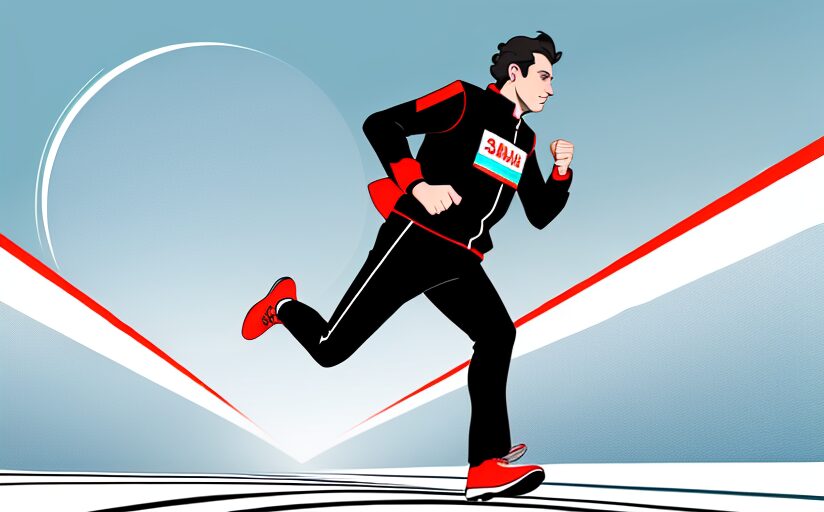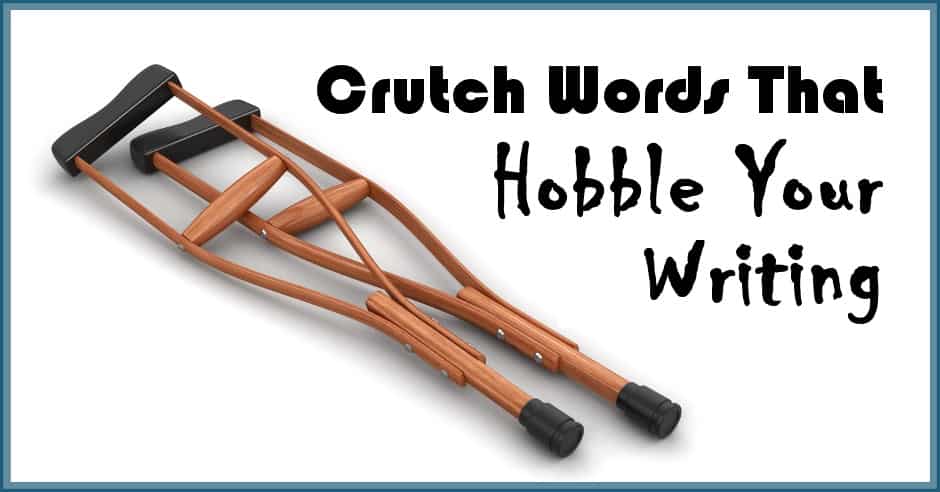Any type of gap, be it one in your teeth, a pothole in the road or a stretch of silence in the middle of a sentence, is often seen as an unwelcome and uncomfortable interruption in an otherwise seamless display. When it comes to both speaking and writing, we seek to fill a chasm of silence with something, anything, to keep the ball rolling. My high school speech teacher, Mrs. Hollis, did a great job of getting me into the habit of avoiding saying um while speaking. This is a perfect example of a crutch word.
If you’ve uttered um while speaking or used crutch words in writing, it’s time to heal your scribbled wounds and cast off the crutches.

The Definition of, Like, a Crutch Word
A crutch word is essentially a placeholder, something we say or sometimes even write when we can’t think of the right word to accurately describe what we want to convey. Crutch words are also used to draw in focus on our meaning, such as the use of really or literally. You might also use a crutch word not because you can’t think of what to say or because you want to draw attention to what you’re saying, but just because it’s become a habitual speech or writing pattern, like overusing that.
Crutch Words Examples:
- Actually: Much like literally, the use of actually is often unnecessary. “I’ve actually been to Tibet.” As opposed to figuratively going?
- Basically: Instead of throwing in basically at the end of a paragraph or speech, get to the core of the matter in the beginning.
- Definitely: See above regarding actually.
- Totally: Even without a Valley Girl accent and an abundance of hair flipping, the use of totally yanks me back to the 90s and the movie Clueless.
- Seriously: For this one, think of a series of question marks in spoken form.
- Honestly: This one might make people think you’re only being truthful when you offer up this single-word disclaimer.
- Like: See above regarding the use of totally.
While there are also crutch words common in speaking, such as um, ah and er, we’ll stick to those common in writing.
Crutch Words That Hinder Rather Than Help
If you’ve already noticed that any of the above crutch words examples are common in your writing, or if there are any other words or phrases that appear more often than others, you’re well on your way to remedying the situation. To start the healing and recovery process, ask yourself what you’re trying to say when you use these words and if there are stronger substitutes that might help. For words like actually, definitely and seriously, you can drop them entirely.
As you can see, several crutch words are adverbs, meaning they end in -ly. Adverbs weaken writing in heavy doses, and you can see why. Substitute more powerful words that mean the same thing as crutch words and watch your staggered writing take off in a Usain Bolt sprint to victory.

What Crutch Words Do You Use?
Do you have any crutch words you’d like to contribute? Give us a dose of good medicine in the comment section below to heal our writing bruises.


Leave a Reply